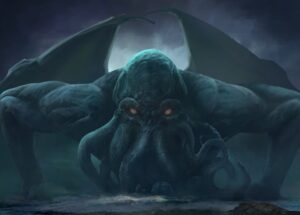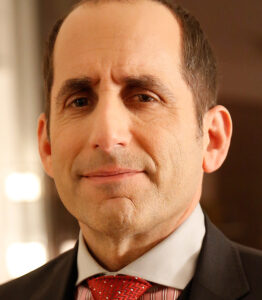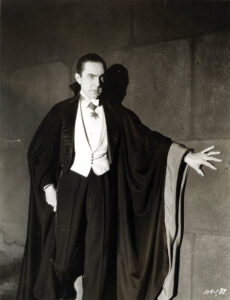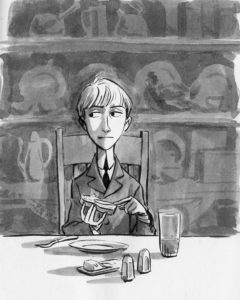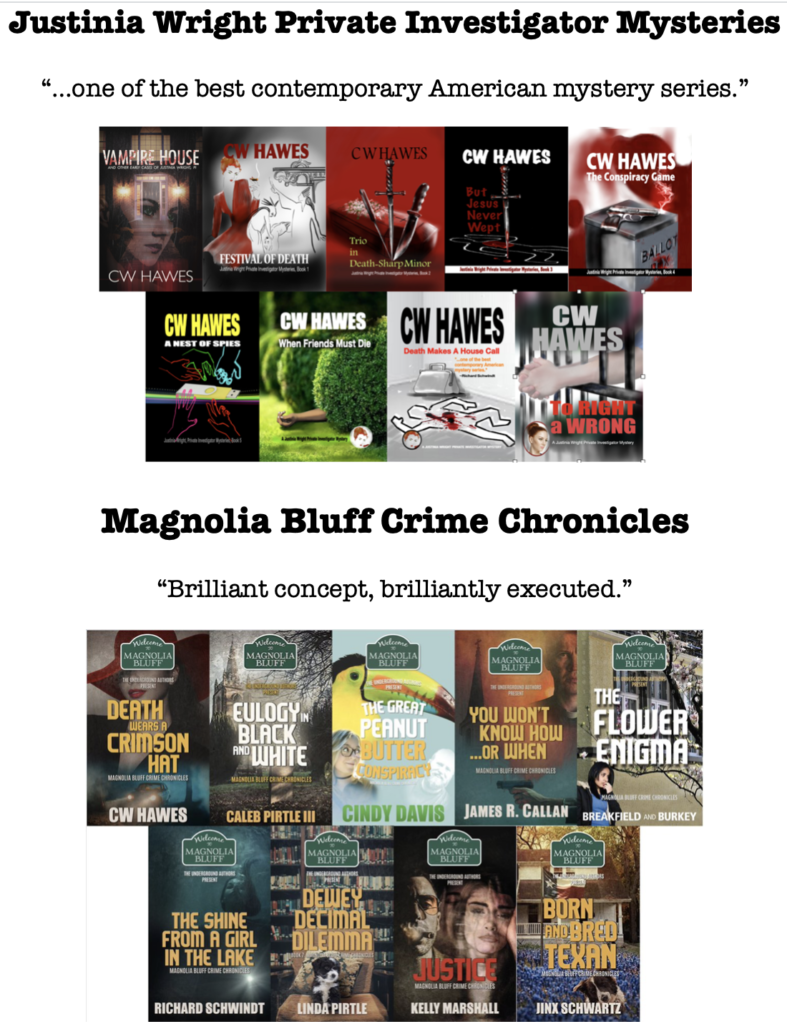A while ago, I wrote a post listing my ten favorite fictional characters.
Today, I thought I would list my 10 favorite “bad” characters. I put bad in quotes because some of these characters aren’t actually evil. They are simply narcissists. And in pulling everything they can into orbit around themselves, to serve themselves, they cause bad things to happen to good people.
Perhaps, that is how it is with all evil people. They actually aren’t evil. They’re simply narcissists doing their self-centered thing.
British criminologist F. Tennyson Jesse made the observation that all criminals have big egos. But murderers have the biggest egos. In other words, according to Mrs Jesse, bad folk are narcissists.
The question we have to ask ourselves is, does this make narcissists evil people? Well, I’ll leave that thorny issue for another post.
On to my favorite baddies.
The Indifferent
The one big baddy that should top every list, but I found tops no one’s list is Cthulhu.
Cthulhu, the invention of HP Lovecraft, is one of a host of superior interstellar beings who are the supreme embodiment of all that is evil.
In actuality, though, Cthulhu and his ilk aren’t evil. They are simply indifferent to our existence. As we are to ants.
In Cthulhu’s world, we’re the ants.
However, that indifference comes across to us as evil. And since Cthulhu and his ilk dwarf us in every conceivable way, they are the baddest of the bad. As far as we are concerned.
The Narcissists
Some villains aren’t so much evil as they are simply self-absorbed individuals. No one matters to them, except for themselves, of course.
And three of my favorite fictional bad guys and gals are supreme narcissists, and it’s the fallout from their narcissism that causes bad things to happen to good people. And the not so good, as well.
Becky Sharp, from Vanity Fair by Thackeray, is a narcissistic con artist. Constantly striving for money and social position, she wreaks havoc and death on many who have dealings with her. She is not necessarily maliciously evil. She simply feels she is entitled to the good things she did not have as an orphan — and she is determined to get them at any and all cost, just shy of murder.
She, from H Rider Haggard’s book of the same name, is another narcissist who is perhaps a shade darker than Becky Sharp. After all, Ayesha, She’s real name, actually killed her lover out of jealousy many centuries ago in ancient Egypt.
Then, discovering the key to living forever, she is waiting for his return. In the meantime, she rules the Amahaggar peoples with an iron fist.
Ayesha is exceedingly vain and self-absorbed. And nothing stands in the way of her desire.
Alan Snyder, Proxy Governor of the Los Angeles Bloc in the post-apocalyptic world of the TV series Colony, is the consummate narcissist. He will do anything to advance himself or save his neck. He will help you. He will hurt you. It all depends on what he will get out of it. He is one of my all time favorite villains.
The Evil
There are bad guys and gals who are just plain evil. There is nothing demonstrably good about them. The ones below are among my favorites.
Professor James Moriarity, the Napoleon of crime, is the quintessential evil genius criminal mastermind. Cold and calculating, there is nothing good about him. Perhaps that is why he endures.
Hans Gruber, from the movie Die Hard, is a bad to the bone crook. From the beginning of the movie to the end, there is nothing redeemable about this guy. Even in death, he’s unrepentantly bad.
Count Dracula is another bad to the bone, super evil villain. Yet, is the count actually bad? Or is he just hungry? After all, the undead apparently do need to eat. We humans just happen to be what’s for supper. Nevertheless, there is something about the predator that the prey seem to think is evil. But it might just be a matter of perspective.
Miriam Blaylock, the focal point character of Whitley Strieber’s The Hunger, is not undead, but she is a vampire. She’s the last of a race of vampiric humanoids that are the natural predators of humans. In addition, they are the foundation of all of our myths and legends.
She, too, must eat. Does that make her automatically evil? Perhaps not.
However, she doesn’t lay to rest her lovers when they eventually age. Instead, she locks their dried conscious husks into a chest. Sounds pretty nasty to me. That action is perhaps the height of narcissistic evil. She just can’t let them go. Even when they’re on the edge of death.
On the other hand, Conradin, from Saki’s tale “Sredni Vashtar”, doesn’t appear to be evil at all. That role goes to his cousin and guardian Mrs De Ropp. She is one controlling and overbearing person. She is smothering the sickly boy to death.
But when Mrs De Ropp dies, seemingly in response to Conradin’s prayer, he shows no remorse and simply butters another slice of toast. That, my friends, is cold. And evil.
The final evil character on my list is O’Brien, from Orwell’s 1984. He is consummate evil. More so than Dracula, who’s just looking for lunch. Why? Because O’Brien is out to get people. All those guilty of wrong thinking. He is a member of the Inner Party and the Thought Police.
When he captures Winston not toeing the party line, O’Brien tortures him to the point where he destroys Winston as a person. Unfortunately for Winston, he’s still breathing. Little more than a walking, talking stalk of celery. He might have been better off as Dracula’s guest.
There you have my list of favorite fictional baddies.
Comments are always welcome! And until next time, happy reading!
 CW Hawes is the author of the bestselling Death Wears a Crimson Hat; he’s also a playwright, screenwriter, fictioneer, and an award-winning poet. When not writing, he’s an armchair philosopher, political theorist, social commentator, and traveler. He loves a good cup of tea and agrees that everything’s better with pizza.
CW Hawes is the author of the bestselling Death Wears a Crimson Hat; he’s also a playwright, screenwriter, fictioneer, and an award-winning poet. When not writing, he’s an armchair philosopher, political theorist, social commentator, and traveler. He loves a good cup of tea and agrees that everything’s better with pizza.
If you enjoyed this post, please consider buying me a cup of tea. Thanks! PayPal.me/CWHawes
Justinia Wright Private Investigator Mysteries on Amazon!
Magnolia Bluff Crime Chronicles on Amazon!
Share This!